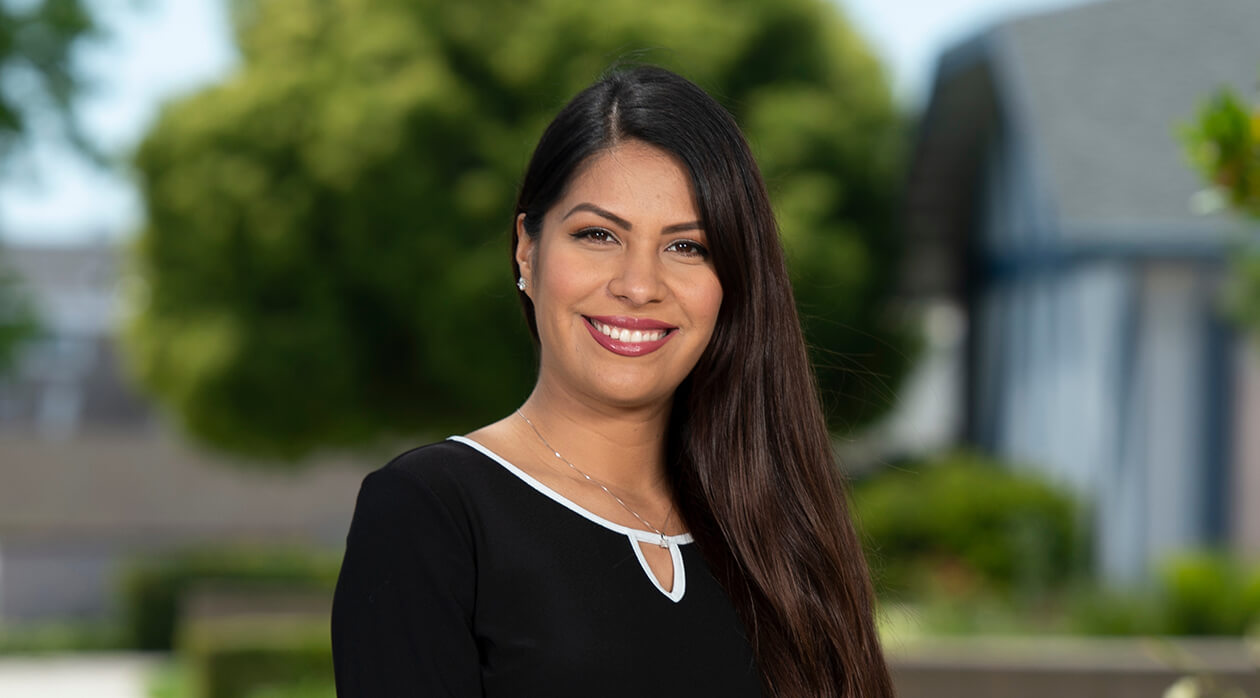Cal State LA’s aspiring plant ecologist to pursue Ph.D. at Cornell in fall
Fullerton resident to graduate with Master of Science in Biology
By Margie Low | Cal State LA News Service
As a teenager, Beatriz Aguirre often enjoyed the challenge of figuring out answers to mind-boggling questions and poring over evidence in a crime story to find the solution to a case.
As a Cal State LA student, she used environmental clues to solve ecological mysteries. She explored how the unique roles of humidity and soil moisture affected plant performance during drought as part of her graduate research project. Her research findings were accepted by the Journal of Ecology for publication in an upcoming special feature.
Aguirre, a 26-year-old Fullerton resident, will graduate in May with a Master of Science in Biology from the College of Natural and Social Sciences. She will begin a Ph.D. program at Cornell University in the fall studying disease ecology in plant communities.
She credits Cal State LA and its faculty with offering her the support and guidance she needed to succeed.
“Cal State LA has provided me with plenty of opportunities that have ultimately helped shape both the person and scientist I am today,” she says.
Aguirre graduated from Magnolia High School in Anaheim and enrolled at Cal State LA to pursue a bachelor’s degree in criminal justice. Growing up, she wanted to become a criminalist. As she delved into her studies, she discovered that she was more interested in the science component of forensic science. She changed her major to biology and decided to minor in forensic science.
After taking a plant physiology class during her junior year, Aguirre realized that her calling was in the study of plant ecology. Plant ecology examines the relationships of plants with the physical and biotic environment.
“The field of plant ecology fascinates me because there are still so many unanswered questions and there are so many opportunities to engage in novel research,” she says.
Aguirre eventually joined Professor Alexandra Wright’s plant community ecology research lab. Determined to continue her research and further her studies, she progressed toward a master’s degree in biology after earning her Bachelor of Science in Biology in 2018.
As the first in her family to attend college, Aguirre says she had always considered higher education a “long-shot dream.” But her parents continuously stressed the importance of education and worked hard to provide for Aguirre and her four siblings.
“I knew my family didn’t have money to pay for my college tuition,” says Aguirre, who at one point worked three part-time jobs to pay for tuition. “Just like my parents worked hard, I also worked hard to do everything in my power throughout middle school and high school to ensure I would be a qualified college applicant.”
In addition to support from her family, Aguirre credits Cal State LA faculty members Alexandra Wright, Paul Nerenberg, Eric Wood and Christine Scoffoni for motivating her academically and encouraging her to set her sights on a doctorate.
Aguirre enhanced her research skills and cultivated her aspirations through the Louis Stokes Alliance for Minority Participation (LSAMP) Bridge to the Doctorate program. LSAMP is a comprehensive, statewide program dedicated to activities that will help prepare college students for Ph.D. studies in science, technology, engineering and mathematics (STEM) disciplines. It is funded by the National Science Foundation (NSF) and the California State University Office of the Chancellor.
Aguirre also developed her leadership skills through U-Lead workshops offered by the University-Student Union. She was instrumental in putting together a Cal State LA cheer team and served as the dance captain. With a 3.925 GPA, she is also a recipient of a Golden Eagle Award of Excellence.
She was recently awarded an NSF Graduate Research Fellowship and a SUNY Graduate Diversity Fellowship at Cornell.
“These fellowships will allow me to conduct my own research in collaboration with the faculty scientists at Cornell University,” she says. “I am excited to venture to a new place outside of California as an opportunity of growth, as well as to work with the supportive faculty at Cornell’s Department of Ecology and Evolutionary Biology whom I have already met.”
As she moves to the next chapter of her academic journey, she looks forward to reaching her goal of becoming a professor, researcher and mentor for the next generation of scientists.
“Being a minority, first-generation college student and a woman in science has shown me the ongoing need for diversity within the fields of STEM,” Aguirre says.
####
